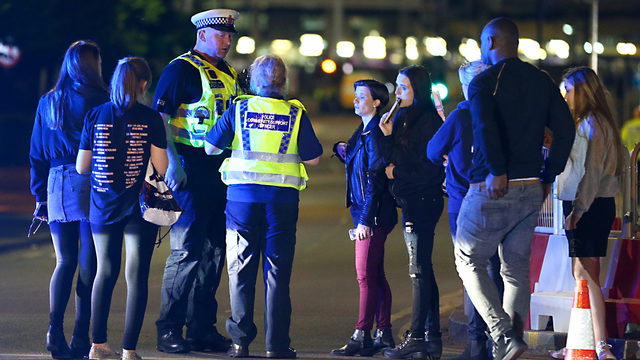
LONDON — A suicide attack at a concert given by pop star Ariana Grande in Manchester in May might have been foiled had British investigators grasped the importance of “highly relevant” intelligence that reached their desks, according to a government-commissioned report released Tuesday.
“It is conceivable that the Manchester attack in particular might have been averted had the cards fallen differently,” the review concluded. It noted that the bomber, Salman Abedi, 22, had been a “subject of interest” but was not under active investigation at the time of the attack.
Abedi was born and raised in Manchester. He had traveled to and from Libya in the days before he struck at Manchester Arena, killing 22 people and wounding more than 100.
The suicide bombing was one of four terrorist attacks in Britain this year that were studied by David Anderson, a former independent reviewer of terrorism legislation. He was allowed to examine nine classified internal reviews, totaling 1,150 pages, that were conducted by counterterrorism police and the domestic intelligence service MI5.
Anderson said authorities might have missed some important intelligence in the Manchester case. But he also noted, “Attacks continue to be successfully disrupted, often after intensive and painstaking work, with successful prosecutions and long prison sentences a regular occurrence.”
Anderson said he was briefed on 20 recently thwarted plots. MI5’s director told the British cabinet Tuesday that police and intelligence services had foiled nine terrorism plots in the past year.
Britain’s home secretary, Amber Rudd, said the Manchester bomber was “a closed subject of interest at the time of the attack” and therefore not under active investigation.
“In early 2017, MI5 nonetheless received intelligence on him, which was assessed as not being related to terrorism,” Rudd said in a statement. “In retrospect the intelligence can be seen to be highly relevant. Had an investigation been reopened at the time, it cannot be known whether Abedi’s plans could have been stopped. MI5 assesses that it would have been unlikely.”
Counterterrorism forces are “running well over 500 live operations — a third up since the beginning of the year — involving roughly 3,000 subjects of interest,” the home secretary added. “In addition, there are over 20,000 further individuals — or closed subjects of interest — who have been previously investigated, and may again pose a threat.”
Three of the six attackers involved in the four 2017 incidents studied by Anderson were on MI5’s radar, including Khuram Shazad Butt, who led a vehicle-and-knife attack at London Bridge and Borough Market that killed eight, and Khalid Masood, who rammed his car into pedestrians on the Westminster Bridge and killed five people, including a police officer outside Parliament.
In his report, Anderson said that authorities “got a great deal right” and that their classified reviews of their own work were honest and aimed at improving their chances of foiling plots.
Comments
Post a Comment